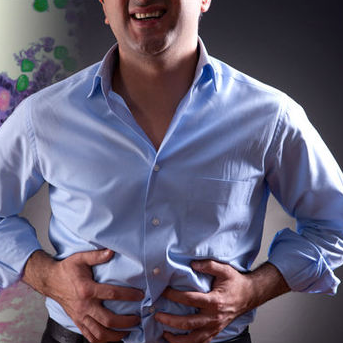Gallbladder Cancer Treatment in Panama City
Search and Compare the Best Clinics and Doctors at the Lowest Prices for Gallbladder Cancer Treatment in Panama City

No Time?
Tell us what you're looking for and we'll reach out to the top clinics all at once
WHY US?

No Time?
Tell us what you're looking for and we'll reach out to the top clinics all at once
What does the Procedure Involve?
Surgery is the main treatment for early-stage gallbladder cancer. The following are types of surgery performed to treat gallbladder cancer:
-
Cholecystectomy is a surgical procedure to remove the gallbladder. In some cases, a small amount of liver that surrounds the gallbladder may also be removed (called an extended cholecystectomy).
-
Radical gallbladder resection involves the removal of the gallbladder, a part of the liver near the gallbladder, all or part of the ligaments between the intestines and the liver, the common bile duct, as well as the lymph nodes around the pancreas and blood vessels near the area.
Surgery is generally performed under general anesthetic, so you will not feel anything throughout the procedure.
Radiation therapy
Radiation therapy uses high-energy X-rays or other particles to destroy cancer cells or to stop them from growing. There are two types of radiation therapy: external and internal. External radiation therapy uses a machine outside of the body, while internal radiation therapy uses a radioactive substance sealed in a device that is placed near or directly into cancer. The most common type of radiation therapy for gallbladder cancer is external radiation therapy.
Chemotherapy
Chemotherapy uses drugs to stop cancer cells from dividing. It can also kill cancer cells. The drug can be injected into a vein or muscle or taken by mouth. In some cases, the drugs may also be placed directly into the affected organ.
Treatment to help with symptoms
Also known as palliative care, this type of treatment aims to slow down cancer and to help you manage symptoms that may occur. For instance, if your bile ducts are blocked due to advanced gallbladder cancer, your surgeon can place a stent in a duct in order to hold it open or reroute bile ducts around the blockage.
How Long Should I Stay in Panama City?
For surgical procedures, you need to stay in the hospital for 1 to 3 days and stay in Panama City for at least 7 to 14 more days for follow-up checkups. For radiation therapy and chemotherapy, your length of stay depends on your treatment plan (how many cycles of therapy you need).
What's the Recovery Time?
The recovery time for surgical procedures may take 2 to 6 weeks, depending on the type of surgery you underwent and the technique your surgeon used. Side effects after radiation therapy and chemotherapy usually subside within several weeks or months.
What About Aftercare?
Your medical team will give you a set of aftercare instructions after any type of treatment. It is important that you follow all of the instructions carefully to avoid complications. The instructions may include a special diet, light exercises, wound care (for surgical procedures), and restrictions.
Make sure to eat a healthy and balanced diet, avoid bad habits (such as smoking), and exercise regularly after you have recovered. You will also need checkups with your doctor for the rest of your life. Regular medical care is important to stay healthy. Regular checkups are necessary to ensure cancer has not come back.
What's the Success Rate?
Gallbladder cancer treatment can be effective and successful. In many cases, treatments may even put you in remission (when cancer cannot be detected in the body and there are no symptoms).
Surgery, chemotherapy, and radiation therapy all come with potential risks and side effects. These include infection, bile leakage, and damage to a bile duct, bleeding, swelling, blood clots, heart problems, pneumonia, hematoma, nausea, vomiting, and hair loss.
Are there Alternatives to Gallbladder Cancer Treatment?
Some people choose to take part in a clinical trial. A clinical trial is a research study that is used to obtain more information on new treatments or to improve current treatments. Currently, treatments called radiation sensitizers are being tested. Radiation sensitizers include hyperthermia therapy (a treatment in which high temperatures are used to kill cancer cells) and radiosensitizers (a treatment that involves the use of drugs that can make tumor cells more sensitive to radiation therapy). Patients who take part in clinical treatment help improve the way cancer will be treated in the future.
This information has been accurately sourced and verified by a medical professional for its accuracy, however, we strongly recommend you to consult with your doctor before pursuing medical procedures overseas.


